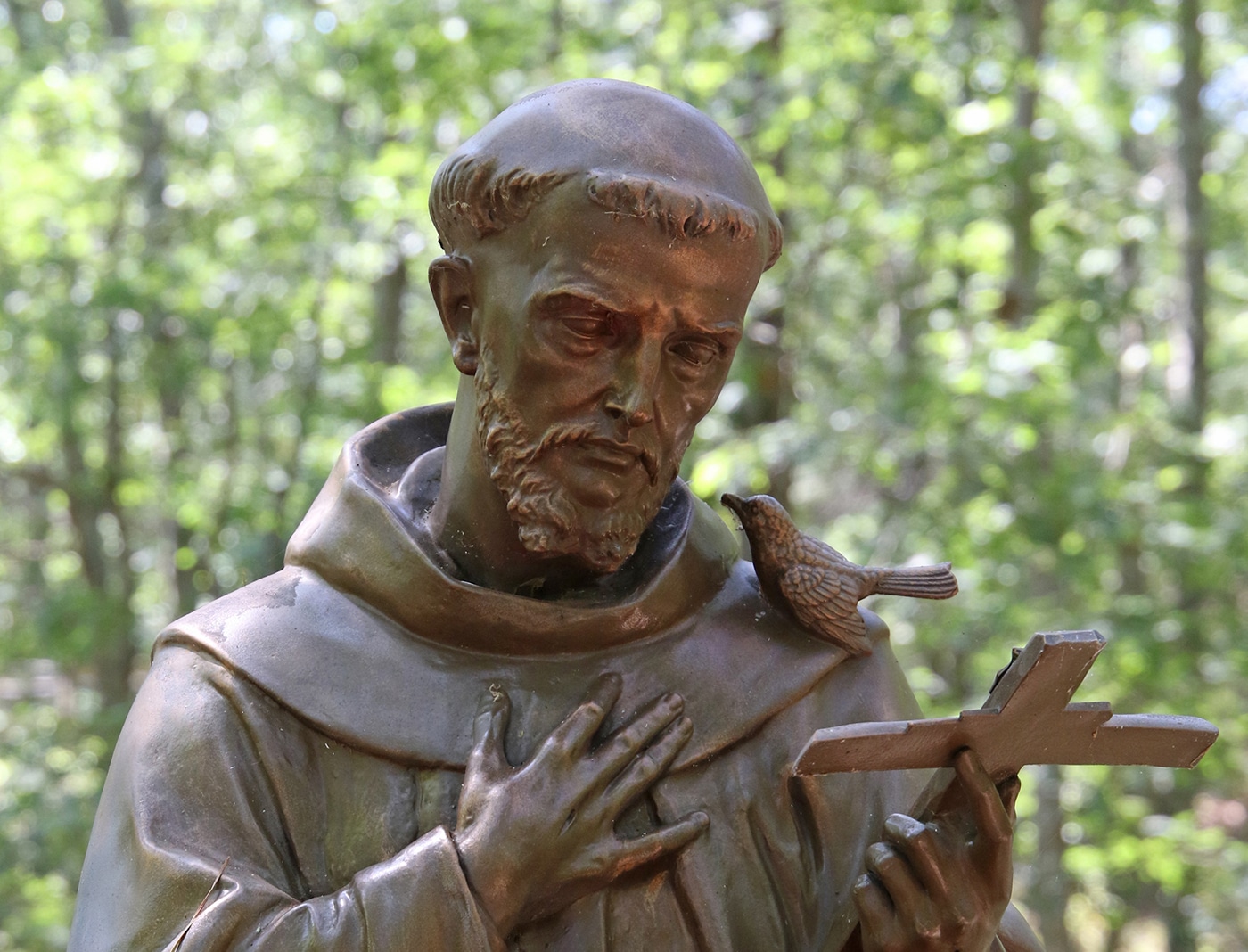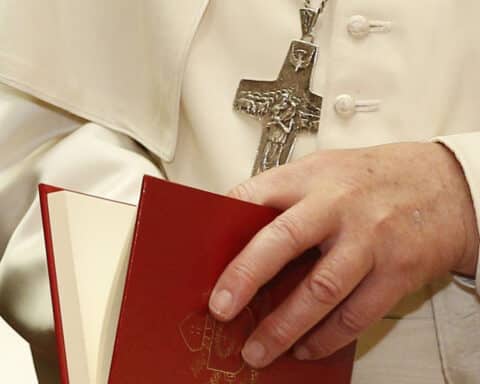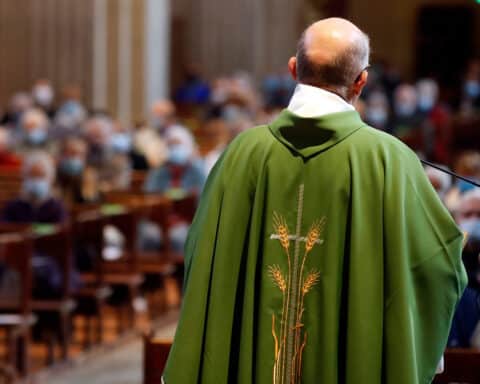Question: In Mark 16:15, Jesus says “Go into the whole world and proclaim the Gospel to every creature.” Why the word “creature”? Was this a foreshadowing of St. Francis, who preached to birds? Please explain this term.
— Name withheld, Virginia
Answer: The Greek term translated here as “every creature” is ktisis and can be translated also as “all creation.” By extension, the term can also mean “everywhere.” And this is the first and likely sense of the expression, that they should go to all the nations, that they should announce and preach the Gospel everywhere. The notion that they should preach to animals and other creatures such as plants cannot be its first or literal meaning. Since plants and animals are not rational creatures, preaching to them would not be of any use to them.
However, there is a biblical teaching that all of creation will receive a blessing at the Second Coming of the Lord and that the preaching of the Gospel can hasten this. Some texts seem to imply an annihilation of the created world at the Second Coming (cf. 2 Pt 3:10; Mt 24:35; Rv 21:1). However, those same texts also refer to a new heaven and a new earth. Does this mean that the current creation will be wholly destroyed and completely replaced? Possibly, but the Lord, having done this at the end of the Book of Revelation describes what he has done more as a renewal: “The One seated on the throne said, ‘Behold, I make all things new'” (Rv 21:5). Other texts in the Bible foretell a great healing of all creation. Isaiah imagines a world where: “Then the wolf shall be a guest of the lamb, and the leopard shall lie down with the young goat; The calf and the young lion shall browse together, with a little child to guide them. The cow and the bear shall graze, together their young shall lie down; the lion shall eat hay like the ox. The baby shall play by the viper’s den, and the child lay his hand on the adder’s lair. They shall not harm or destroy on all my holy mountain; for the earth shall be filled with knowledge of the Lord, as water covers the sea” (Is 11:6-9). St. Paul also reports, “for creation was made subject to futility, not of its own accord but because of the one who subjected it, in hope that creation itself would be set free from slavery to corruption and share in the glorious freedom of the children of God. We know that all creation is groaning in labor pains even until now” (Rom 8:20-22).
Hence, it would seem that creation itself will be healed one day of the wounds that came with original sin and be restored to integrity. And, the preaching of the Gospel, while not directed currently to non-rational creatures, does help to hasten the day when creation will be restored. St. Peter teaches: “What sort of persons ought [you] to be, conducting yourselves in holiness and devotion, waiting for and hastening the coming of the day of God, because of which the heavens will be dissolved in flames and the elements melted by fire. But according to his promise we await new heavens and a new earth in which righteousness dwells” (2 Pt 3:11-13). Hence, we can hasten the coming of the Lord and the healing of all creation by living righteous lives and adding to the number of the elect. Scripture says, “creation awaits with eager expectation the revelation of the children of God” (Rom 8:19). And when the number of the elect is complete, creation too will share in the renewal of all things.
Since the preaching and obedience to the Gospel helps to hasten this, then there is a connection after all to Jesus’ words to “proclaim the gospel to every creature.” Literal preaching to non-rational creatures is not meant here, but all creation can allegorically ‘rejoice” as the Gospel goes forth to humanity for it gloriously presages the liberation of all creation. That St. Francis is said to have preached to the animals surely points to this future, but it is also a story meant to admonish us, just as the Lord once said, “I tell you, if they [the disciples] keep silent, the stones will cry out!” (Lk 19:40). In other words, St. Francis had recourse to preaching to the animals to illustrate our stubbornness. Except by a miracle, these animals could not have understood his words.





